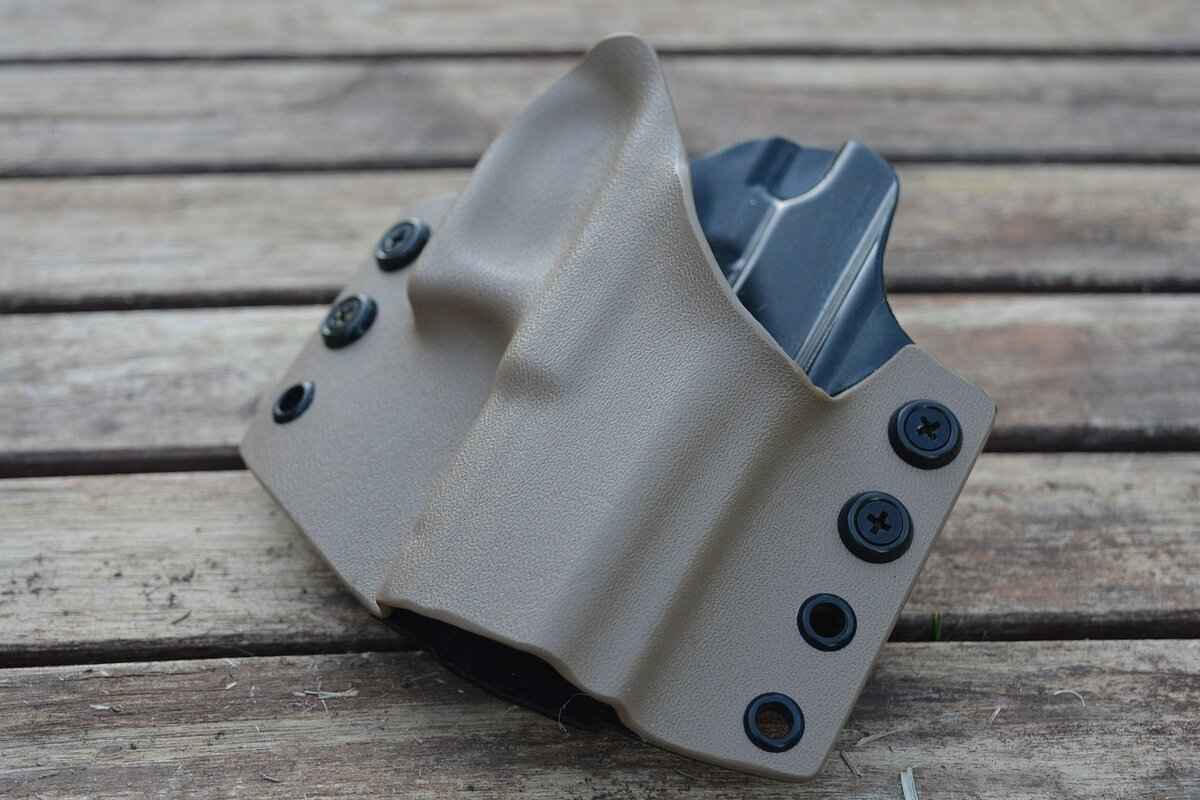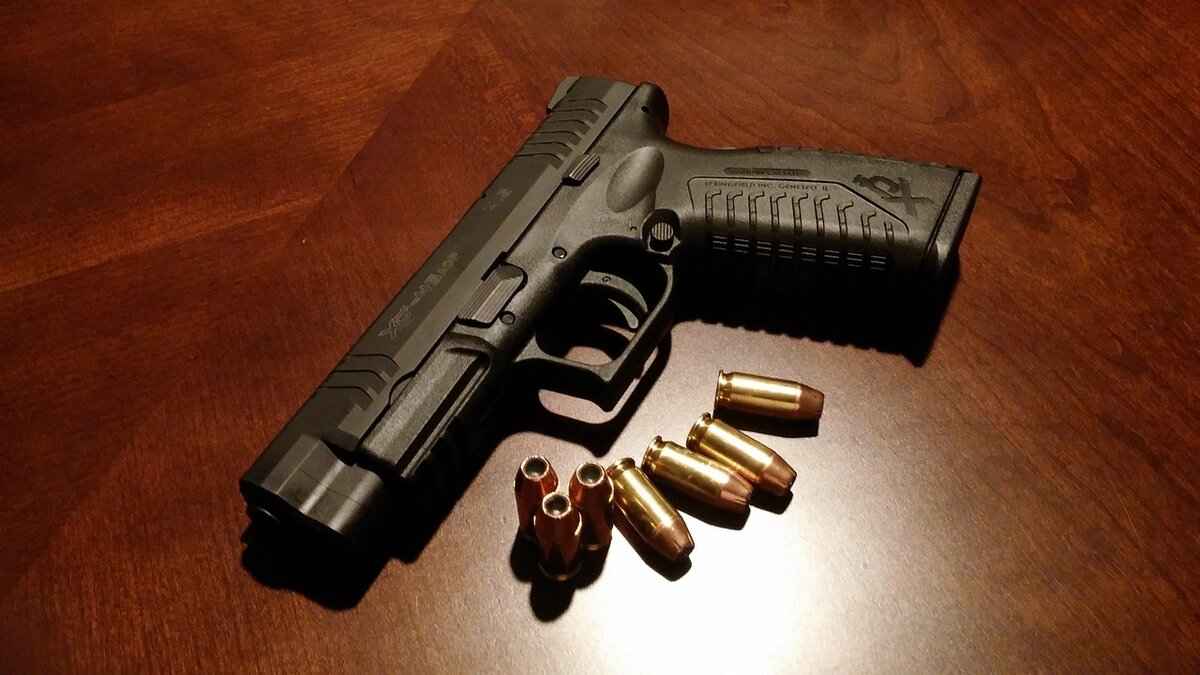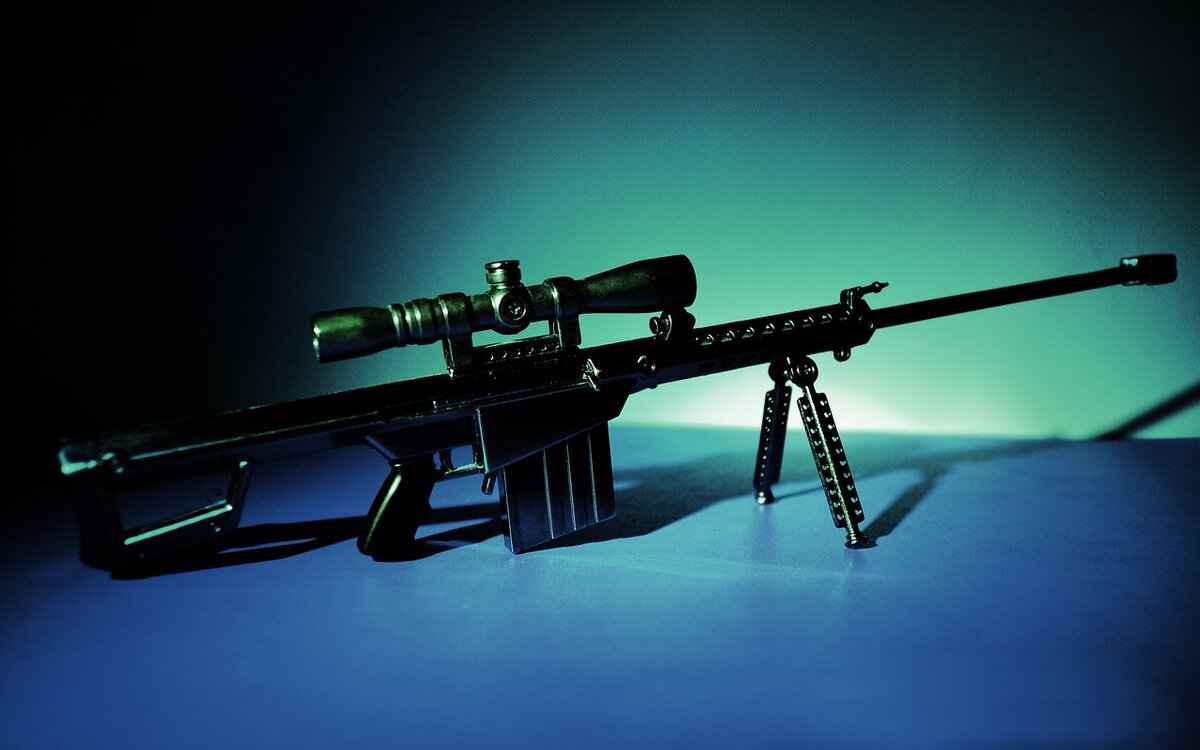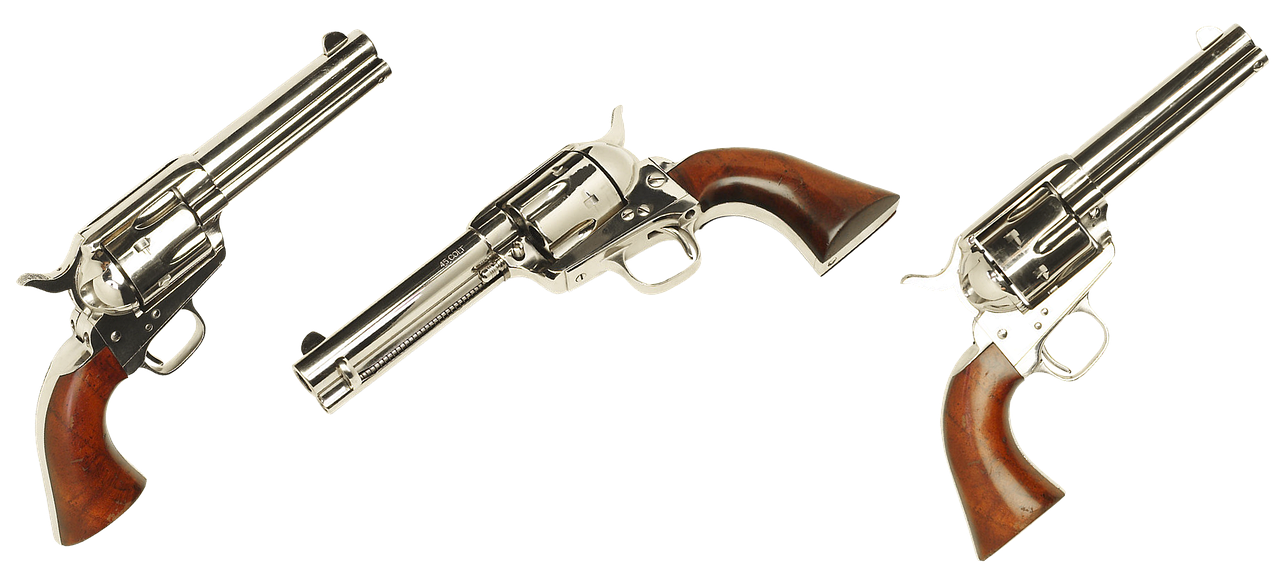This comprehensive guide outlines the necessary steps to legally sell a firearm, ensuring compliance with laws and regulations. It covers essential considerations, paperwork, and best practices for a smooth transaction.
Understanding Gun Laws in Your State
Before initiating the sale of a firearm, it is imperative to familiarize yourself with the specific gun laws applicable in your state. Each state has its own set of regulations governing the ownership and transfer of firearms. Some states mandate that all private sales must be conducted through a licensed dealer, while others may require background checks for buyers. To avoid legal complications, consult your local laws or seek advice from a legal expert in firearms legislation.
Preparing the Firearm for Sale
Proper preparation of your firearm can significantly enhance its marketability. Start by thoroughly cleaning the gun, as a well-maintained appearance can attract potential buyers. Additionally, inspect the firearm for any defects or issues and document its condition with high-quality photographs. Providing potential buyers with detailed information about the firearm’s history, including any repairs or modifications, can foster trust and transparency.
Determining the Value of Your Firearm
Setting a fair price is crucial for a successful sale. Research the market value of your firearm by checking online marketplaces, auction sites, and pricing guides. Consider the make, model, age, and condition of the firearm to establish a competitive asking price. Remember, overpricing can deter buyers, while underpricing may lead to financial loss.
Choosing the Right Selling Method
There are various methods to sell a firearm, each with its advantages and disadvantages. You can opt for private sales, which often yield higher profits, or utilize online marketplaces that provide a broader audience. Gun shows and local classified ads are also viable options. Evaluate your comfort level with each method and choose one that aligns with your selling goals.
Creating a Bill of Sale
A bill of sale is an essential document that serves as proof of the transaction and protects both the buyer and seller. This document should include details such as the buyer’s and seller’s information, a description of the firearm, the sale price, and the date of the transaction. Having this document can help prevent disputes and provide legal protection should any issues arise after the sale.
Conducting a Background Check
In many states, conducting a background check on potential buyers is a legal requirement. This process helps ensure that firearms do not fall into the hands of individuals prohibited from owning them. Familiarize yourself with the procedures for conducting background checks in your state and be prepared to provide the necessary information to complete the process.
Advertising Your Firearm
Effective advertising is key to attracting potential buyers. Utilize online platforms, social media, and local gun clubs to promote your firearm. Ensure that your advertisements comply with legal guidelines and accurately represent the firearm’s condition and features. High-quality images and thorough descriptions can significantly enhance your listing’s appeal.
Meeting Potential Buyers Safely
Safety should be your top priority when meeting potential buyers. Choose public locations for transactions, such as gun shops or community centers, to ensure a safe environment. Consider bringing a friend along for added security, and trust your instincts—if something feels off, it’s okay to walk away from the deal.
Understanding Transfer Procedures
Different states have varying procedures for transferring firearms. Familiarize yourself with these processes to ensure that the sale is conducted legally. This may involve filling out specific forms or notifying local authorities about the transfer. Understanding these requirements can help prevent complications during the sale.
Handling Payment Securely
When it comes to payment, security is paramount. Accept cash or verified payment methods to avoid scams. Be cautious of personal checks or money orders, as they can be easily forged. Always confirm the legitimacy of the payment before finalizing the sale.
Post-Sale Responsibilities
After completing the sale, it’s essential to fulfill any remaining legal obligations. This may include notifying local authorities about the transfer or maintaining records of the transaction for your protection. Keeping thorough documentation can safeguard you in case of future disputes regarding the firearm.
Resources for Further Assistance
If you have questions or need guidance about selling firearms, numerous resources are available. Local gun shops, legal experts, and online forums can provide valuable insights and support throughout the process. Don’t hesitate to reach out for assistance to ensure a smooth and compliant transaction.

Understanding Gun Laws in Your State
Before you consider the sale of a firearm, it is essential to navigate the complex landscape of gun laws in your state. Each state has its own set of regulations that govern the sale and transfer of firearms, which can significantly impact your ability to sell a gun legally. Familiarizing yourself with these laws is not just a precaution; it is a legal necessity.
- Ownership Regulations: Each state defines who can own a firearm and under what conditions. Some states may prohibit ownership for individuals with certain criminal convictions, while others have age restrictions or residency requirements.
- Transfer Laws: The laws regarding the transfer of firearms can vary widely. Some states require that all sales be conducted through a licensed dealer, while others allow private sales without any intermediary. It is vital to understand what is permissible in your state.
- Background Checks: Many states mandate background checks for private sales. This means that as a seller, you may be required to conduct a background check on the buyer to ensure they are legally eligible to purchase a firearm.
- Documentation: In some states, you may need to complete specific paperwork to document the sale. This could include a bill of sale or other forms that record the transaction details, which serve as proof of the transfer of ownership.
Understanding these regulations is crucial to avoid legal repercussions. Ignorance of the law is not typically considered a valid defense, and failing to comply with state laws can result in severe penalties, including fines and imprisonment.
Moreover, it is advisable to consult local law enforcement or legal experts who specialize in firearms regulations to gain a clearer understanding of your obligations. You can also find resources online, such as state government websites, that provide comprehensive information about gun laws specific to your area.
Additionally, staying informed about any changes in legislation is essential. Gun laws can evolve, and new regulations may be introduced that could affect your ability to sell firearms. Subscribing to newsletters from legal advocacy groups or joining local firearms organizations can help you stay updated on these changes.
In conclusion, understanding gun laws in your state is a fundamental step in the process of selling a firearm. By ensuring compliance with ownership regulations, transfer laws, and background check requirements, you can facilitate a smooth and legal transaction while promoting responsible gun ownership in your community.

Preparing the Firearm for Sale
When it comes to selling your firearm, first impressions matter. Proper preparation can significantly enhance both the appeal and value of your gun. This process involves a few key steps: cleaning, inspecting, and documenting the firearm’s condition. By taking the time to ensure your firearm is in excellent shape, you can provide potential buyers with the confidence they need to make a purchase.
- Cleaning the Firearm: Start by thoroughly cleaning your firearm. Use appropriate cleaning supplies to remove any dirt, grime, or residue. Pay special attention to the barrel, action, and any moving parts. A clean firearm not only looks better but also indicates to buyers that you have taken good care of it.
- Inspecting the Firearm: Once cleaned, conduct a detailed inspection. Look for any signs of wear, rust, or damage. Check the functionality of all components, including the trigger, safety, and magazine. If you notice any issues, consider addressing them before listing the firearm for sale, as this can increase its marketability.
- Documenting the Condition: Take high-quality photographs of the firearm from multiple angles. Include close-ups of any unique features or imperfections. Additionally, prepare a detailed description that outlines the gun’s specifications, history, and any modifications made. This documentation will help potential buyers assess the firearm accurately and build trust in your listing.
Providing potential buyers with accurate information about your firearm’s condition is crucial. Transparency can lead to a smoother transaction and reduce the likelihood of disputes after the sale. Consider creating a checklist of the firearm’s features, such as caliber, model, and any accessories included in the sale. This information can be beneficial for buyers who are comparing multiple listings.
Lastly, remember that the market for firearms can be competitive. A well-prepared firearm not only stands out but can also command a higher price. By investing time in cleaning, inspecting, and documenting your firearm, you position yourself as a responsible seller, which can ultimately lead to a more successful sale.

Determining the Value of Your Firearm
When it comes to selling your firearm, one of the most crucial steps is determining its market value. Understanding the worth of your gun not only helps you set a fair and competitive price but also ensures that you are not underselling your property. Here’s a detailed guide on how to effectively assess the value of your firearm.
- Research Similar Models: Start by looking at similar firearms that are currently on the market. Websites like GunBroker, ArmsList, and local classifieds can provide insights into the going rates for comparable models. Pay attention to the make, model, and year of production.
- Consider the Condition: The condition of your firearm plays a significant role in its value. Factors such as cosmetic wear, mechanical function, and any modifications can either enhance or detract from its worth. Be honest in your assessment to avoid disputes later.
- Consult Pricing Guides: Various pricing guides are available that can help you gauge the value of your firearm. Publications like the Blue Book of Gun Values provide detailed pricing information based on historical sales data and current market trends.
- Check Auction Results: Reviewing auction results can provide a real-world perspective on what buyers are willing to pay. This can be particularly useful for rare or collectible firearms.
- Engage with Experts: If you’re unsure about your firearm’s value, consider consulting with a local gun shop or a certified appraiser. Their expertise can provide valuable insights and help you set a realistic price.
Additionally, it is essential to stay updated on market trends. Firearm values can fluctuate based on various factors, including political climate, legislation changes, and demand for specific types of guns. Keeping an eye on these trends can help you adjust your asking price accordingly.
When you have a clear understanding of your firearm’s value, you can confidently set a price that reflects its worth, attracting potential buyers while ensuring a fair transaction. Always remember that transparency is key; providing potential buyers with detailed information about your firearm’s condition and history can foster trust and facilitate a smoother sale.

Choosing the Right Selling Method
When it comes to selling a firearm, selecting the appropriate selling method is crucial for ensuring a successful transaction. There are various avenues available, each with its own set of advantages and disadvantages. Understanding these can help you make an informed decision that aligns with your needs and circumstances.
- Private Sales: One of the most common methods for selling a gun is through private sales. This can be done directly to another individual, often through word of mouth or local advertisements. The main advantage of private sales is the potential for a higher sale price, as you can negotiate directly with the buyer without any intermediary fees. However, it’s essential to ensure compliance with local laws, which may require background checks or specific paperwork.
- Online Marketplaces: The rise of the internet has transformed how firearms are bought and sold. Websites such as ArmsList, GunBroker, and even general marketplaces like Craigslist allow sellers to reach a broader audience. The advantage here is the convenience and the ability to showcase your firearm with detailed descriptions and images. However, sellers must be cautious of potential scams and should familiarize themselves with the website’s policies and local laws regarding online firearm sales.
- Gun Shows: Participating in gun shows can provide a unique opportunity to sell your firearm. These events gather a large number of potential buyers, allowing you to showcase your gun in person. Gun shows also foster a community atmosphere where enthusiasts gather, making it easier to connect with interested buyers. However, sellers should be aware of the costs associated with renting a booth and any regulations specific to selling at these events.
- Consignment Sales: If you prefer a hands-off approach, consignment sales through local gun shops can be a viable option. In this scenario, the shop sells your firearm on your behalf, typically taking a percentage of the sale price. This method can provide peace of mind, as the shop usually handles the legalities and background checks. However, the downside is that you may receive a lower price due to the shop’s commission.
- Trade-ins: For those looking to upgrade their firearms, trade-ins at local gun shops can be a convenient option. This method allows you to exchange your firearm for credit towards a new purchase. While this can simplify the process, it’s essential to recognize that trade-in values may be lower than what you could achieve through a private sale.
In conclusion, selecting the right selling method for your firearm depends on various factors, including your comfort level with legal requirements, the urgency of the sale, and your desired selling price. By weighing the pros and cons of each method, you can make a decision that best fits your situation, ensuring a smooth and legal transaction.

Creating a Bill of Sale
A bill of sale is an essential document in the process of selling a firearm. It serves as a formal record of the transaction between the buyer and the seller, ensuring that both parties are protected legally. This document not only outlines the details of the sale but also provides proof of ownership transfer, which is critical in the context of firearm sales.
When crafting a bill of sale, it is important to include specific information to make it comprehensive and legally binding. Below are the key elements that should be included:
- Names and Addresses: Clearly state the full names and addresses of both the buyer and the seller. This ensures that both parties are identifiable in case of future disputes.
- Description of the Firearm: Provide a detailed description of the firearm being sold. This should include the make, model, caliber, serial number, and any distinguishing features. Accurate descriptions help prevent misunderstandings.
- Sale Price: Clearly indicate the agreed-upon price for the firearm. This amount should be mutually accepted and documented to avoid any future disagreements.
- Date of Sale: Document the date when the transaction takes place. This serves as a reference point for both parties regarding the transfer of ownership.
- Signatures: Both the buyer and seller should sign the bill of sale. This signature confirms that both parties agree to the terms outlined in the document.
Additionally, it is advisable to have the bill of sale notarized. A notary public can provide an extra layer of verification, ensuring that the identities of both parties are confirmed and that the document is legally binding. While not always required, notarization can be beneficial, especially in states with strict firearm regulations.
Another important aspect of the bill of sale is to include a disclaimer regarding the condition of the firearm. Sellers should clearly state whether the firearm is sold “as-is” or if any warranties are provided. This protects the seller from potential liabilities related to the firearm’s performance after the sale.
In some states, it may also be required to report the sale to local authorities or to maintain a copy of the bill of sale for a specified period. Be sure to check your state regulations to ensure compliance with local laws.
In conclusion, a well-crafted bill of sale is not just a formality; it is a critical document that safeguards the interests of both the buyer and the seller in a firearm transaction. By including all necessary details and adhering to legal requirements, both parties can engage in the sale with confidence, knowing their rights and responsibilities are clearly defined.

Conducting a Background Check
When it comes to selling firearms, one of the most critical steps is conducting a background check on potential buyers. Many states have enacted laws that mandate sellers to perform these checks to ensure that firearms do not fall into the hands of individuals who may pose a risk to themselves or others. Understanding the intricacies of this process is vital for compliance with the law and for promoting responsible gun ownership.
- Why Are Background Checks Important?
- Background checks serve as a safeguard against illegal sales.
- They help prevent firearms from being acquired by individuals with criminal histories or mental health issues.
- Conducting background checks fosters a culture of responsibility among gun owners.
- What Does a Background Check Involve?
- Typically, background checks involve checking the buyer’s criminal record, mental health history, and any restraining orders.
- In many cases, this process is facilitated through the National Instant Criminal Background Check System (NICS).
- Some states may require additional checks at the state level, which can vary significantly.
- How to Conduct a Background Check?
- First, ensure you are familiar with your state’s specific requirements regarding background checks.
- Visit the website of your state’s law enforcement agency or the NICS for guidance.
- Gather the necessary information from the potential buyer, including their full name, date of birth, and any other required details.
- Submit the information through the appropriate channels, which may include online systems or direct contact with local authorities.
- What If a Buyer Fails the Background Check?
- If a potential buyer is denied after a background check, it is crucial to respect their privacy and confidentiality.
- Do not proceed with the sale, as doing so could lead to legal repercussions for both parties.
- Consider offering to assist the buyer in understanding their rights and options moving forward.
- Best Practices for Conducting Background Checks
- Always keep documentation of the background check process for your records.
- Stay informed about changes in laws and regulations regarding firearm sales and background checks.
- Encourage responsible gun ownership by educating buyers about the importance of background checks.
In conclusion, conducting a background check is not just a legal requirement but also a moral obligation for anyone selling firearms. By taking the time to ensure that buyers are qualified, sellers contribute to a safer community and demonstrate a commitment to responsible gun ownership. Always stay informed and compliant with local laws, and remember that knowledge is a powerful tool in promoting safety and responsibility in firearm transactions.

Advertising Your Firearm
Effective advertising is essential when it comes to selling firearms, as it can significantly increase your chances of attracting potential buyers. In today’s digital age, leveraging various online platforms, social media networks, and local gun clubs can help you reach a wider audience. However, it is crucial to adhere to legal advertising guidelines to ensure compliance and maintain responsible practices.
- Utilizing Online Platforms: Websites dedicated to firearm sales provide an excellent opportunity to showcase your firearm. Platforms like GunBroker, ArmsList, and local classified ads can connect you with interested buyers. Make sure to include high-quality images and detailed descriptions of your firearm. Highlight its features, condition, and any accessories included to draw attention.
- Engaging on Social Media: Social media channels such as Facebook, Instagram, and Twitter can be powerful tools for advertising your firearm. Join groups or forums dedicated to firearms enthusiasts where you can share your listing. Be mindful of the platform’s policies regarding firearm sales, and always prioritize safety and transparency in your posts.
- Connecting with Local Gun Clubs: Local gun clubs and shooting ranges often have bulletin boards or newsletters where members can post items for sale. This targeted approach allows you to reach individuals who are already interested in firearms and may be looking to purchase one. Attend club meetings or events to network with potential buyers directly.
- Adhering to Legal Guidelines: When advertising your firearm, it’s imperative to follow state and federal laws regarding firearm sales. This includes not only the content of your advertisements but also ensuring that you are not promoting illegal sales or transfers. Familiarize yourself with regulations such as age restrictions and necessary background checks to ensure compliance.
- Crafting Compelling Descriptions: A well-written advertisement can make all the difference. Use clear and concise language, and include keywords that potential buyers might search for. Mention the make, model, caliber, and any unique features or modifications. Providing a reason for selling can also build trust with potential buyers.
- Setting a Competitive Price: Research similar firearms to determine a fair and competitive price. Being transparent about your asking price and any negotiation room can attract more buyers. Consider including information about the firearm’s history and any maintenance or upgrades performed, as this can justify your pricing.
In summary, effective advertising is a multifaceted approach that combines online and offline strategies to attract potential buyers for your firearm. By utilizing various platforms, engaging with local communities, and adhering to legal guidelines, you can enhance your visibility in the market. Remember, a well-crafted advertisement not only showcases your firearm but also reflects your commitment to responsible firearm ownership and sales.

Meeting Potential Buyers Safely
When it comes to selling firearms, ensuring your safety and the safety of potential buyers is of the utmost importance. Engaging in a transaction involving firearms can be sensitive, and adopting safety measures is essential to mitigate risks. Here are several recommendations to help you conduct safe meetings with potential buyers.
- Choose Public Locations: Always opt for well-lit and busy public spaces for meetings. Locations such as coffee shops, shopping malls, or police stations are ideal as they provide a neutral environment and a sense of security for both parties.
- Bring a Friend: Having a trusted friend accompany you can significantly enhance your safety. This not only provides an extra layer of security but also ensures that someone is there to assist in case of any unforeseen circumstances.
- Inform Someone: Before meeting a buyer, inform a family member or friend about your plans. Share details such as the meeting location, time, and the buyer’s information. This precaution can be crucial in case of an emergency.
- Trust Your Instincts: If something feels off about a potential buyer or the meeting arrangement, trust your instincts. It’s better to cancel a meeting than to put yourself in a potentially dangerous situation.
- Conduct Preliminary Conversations: Engage in conversations with potential buyers before the meeting. This can help you gauge their seriousness and reliability. Ask questions about their interest in the firearm and their experience with firearms to assess their intentions.
- Limit Personal Information: When meeting with buyers, be cautious about sharing personal information. Keep the conversation focused on the transaction and avoid divulging unnecessary details about yourself.
- Prepare for the Transaction: Before the meeting, ensure that you have all necessary documents, such as the bill of sale and any required identification. Being organized can help the process go smoothly and quickly.
By implementing these safety measures, you can create a secure environment for yourself and the buyer. Remember, the goal is to facilitate a transaction that is not only legal but also safe for everyone involved. Taking these precautions can help you navigate the complexities of selling firearms while prioritizing safety at every step.

Understanding Transfer Procedures
When it comes to transferring firearms, it’s essential to recognize that different states have unique procedures and regulations. Understanding these processes is crucial for ensuring that any sale is conducted legally and without complications. This section will explore the various aspects of firearm transfer procedures, including the necessary documentation, legal requirements, and best practices.
- State-Specific Regulations: Each state has its own laws governing the transfer of firearms. Some states may require a background check for the buyer, while others may not. Familiarizing yourself with your state’s specific requirements is vital. Websites like the Bureau of Alcohol, Tobacco, Firearms and Explosives (ATF) provide resources to help you navigate these regulations.
- Documentation: Proper documentation is essential in any firearm sale. A bill of sale is a crucial document that should include details such as the make, model, and serial number of the firearm, as well as the names and signatures of both the buyer and seller. This document serves as proof of the transaction and can protect both parties in case of future legal issues.
- Background Checks: In many states, conducting a background check on the buyer is mandatory. This process typically involves contacting a local law enforcement agency or using a licensed firearms dealer to facilitate the check. Ensuring that the buyer passes this check is not only a legal requirement but also promotes responsible gun ownership.
- Transfer Locations: Firearm transfers are often required to take place at a licensed dealer or a designated location. Some states may allow private transfers, but it is crucial to verify if this is permissible in your state. Meeting at a licensed dealer can provide an added layer of security and legality to the transaction.
- State-Specific Forms: Certain states may require specific forms to be filled out during the transfer process. This could include forms for reporting the sale to local authorities or for registering the firearm in the new owner’s name. Always check your local laws to ensure you have the correct forms completed.
- Safety Considerations: Safety should always be a priority when transferring firearms. Ensure that the firearm is unloaded during the transfer process and that both parties understand how to handle it safely. This not only protects everyone involved but also fosters responsible gun ownership.
In summary, navigating the transfer procedures for firearms can be complex due to varying state laws and regulations. By thoroughly understanding your state’s requirements, preparing the necessary documentation, and prioritizing safety, you can ensure a smooth and legal transaction. Always stay informed about changes in legislation that may affect firearm transfers, as laws can evolve over time.

Handling Payment Securely
is a vital aspect of any firearm transaction. Ensuring that both the buyer and seller engage in a secure payment process not only protects against fraud but also fosters trust between parties. In this section, we will explore various methods of payment and best practices to safeguard your transaction.
When selling a firearm, it is essential to choose payment methods that are both safe and reliable. Cash is often considered the most straightforward option. It eliminates the risk of chargebacks associated with credit card transactions and provides immediate payment. However, handling large amounts of cash can be risky, so it is advisable to conduct the transaction in a secure location, preferably during daylight hours.
Another popular payment method is through verified electronic payment services such as PayPal, Venmo, or Cash App. These platforms offer a layer of protection for both parties, as they can track transactions and provide dispute resolution services. However, it is crucial to ensure that the payment is marked as a ‘goods and services’ transaction to maintain a level of protection against potential scams. Always verify the buyer’s identity and ensure that the payment has cleared before handing over the firearm.
Using escrow services is another option that can enhance security in firearm transactions. An escrow service acts as a neutral third party that holds the payment until both the buyer and seller fulfill their obligations. This method provides peace of mind, as the buyer knows their money is secure until they receive the firearm, and the seller can be assured that payment is guaranteed.
It is also advisable to avoid accepting personal checks or money orders, as these can be easily forged. If you must accept a check, ensure it is from a reputable bank and verify its authenticity before proceeding with the sale.
In addition to choosing the right payment method, it is essential to document the transaction thoroughly. Create a bill of sale that includes details such as the date, amount paid, and both parties’ information. This document serves as proof of the transaction and can protect you in case of future disputes.
Furthermore, always be cautious of potential scams. If a buyer seems overly eager or offers to pay significantly more than the asking price, it may be a red flag. Trust your instincts and take the necessary precautions to ensure a safe transaction.
In summary, handling payment securely is a fundamental aspect of selling firearms. By choosing reliable payment methods, utilizing escrow services, and documenting the transaction, you can protect yourself and ensure a smooth, legitimate sale. Always prioritize safety and trust your instincts throughout the process.

Post-Sale Responsibilities
After completing a firearm sale, it is essential to acknowledge and fulfill any remaining legal obligations. These responsibilities serve to protect both the seller and the buyer, ensuring that the transaction is fully compliant with applicable laws. Here, we will explore the key aspects of post-sale responsibilities in detail.
- Notify Local Authorities: Depending on your state’s regulations, you may be required to notify local law enforcement or other authorities about the sale. This step is crucial as it helps maintain accurate records of firearm ownership and can prevent future legal complications.
- Maintain Transaction Records: Keeping detailed records of the sale is vital for your protection. This includes the buyer’s information, the firearm’s serial number, and the date of the transaction. Such documentation can serve as proof that you no longer own the firearm, which is particularly important if the weapon is used in a crime.
- Follow Up with the Buyer: Although not legally required, it is a good practice to follow up with the buyer after the sale. This can help ensure that they are satisfied with their purchase and can also serve as a way to confirm that they have successfully transferred the firearm into their name.
- Check for Additional Obligations: Some states may have specific post-sale requirements, such as submitting a copy of the bill of sale to a governing body. Familiarize yourself with these obligations to avoid potential fines or legal issues.
- Dispose of Records Safely: After a certain period, if you no longer need the records of the transaction, ensure they are disposed of securely to protect the buyer’s personal information.
Legal Implications of Non-Compliance
Failing to adhere to post-sale responsibilities can lead to significant legal repercussions. If a firearm sold by you is involved in a crime, and you cannot provide proof of the sale, you might face legal scrutiny. Additionally, non-compliance with state laws can result in fines or other penalties, emphasizing the importance of understanding your obligations thoroughly.
Conclusion
In summary, post-sale responsibilities are a critical aspect of the firearm selling process. By notifying local authorities, maintaining proper records, and following up with buyers, you ensure a smooth transition of ownership while protecting yourself legally. Always stay informed about your state’s specific regulations to navigate the complexities of firearm sales effectively.

Resources for Further Assistance
If you are considering the sale of a firearm, it is essential to have access to reliable resources that can guide you through the process. Understanding the legalities surrounding firearm sales can be complex, and having the right information can make a significant difference. Below are some valuable resources that can help you navigate the intricacies of selling firearms legally and safely.
- Local Gun Shops: Your local gun shop is a treasure trove of information. Not only can they provide you with insights on the current market trends, but they can also offer advice on legal requirements specific to your state. Many gun shops have knowledgeable staff who can answer your questions and may even assist you in the selling process.
- Legal Experts: Consulting with a lawyer who specializes in firearms law can be incredibly beneficial. They can provide clarity on the regulations that govern firearm sales, including necessary documentation, background checks, and transfer procedures. This professional guidance can help you avoid potential legal pitfalls.
- Online Forums and Communities: There are numerous online platforms and forums dedicated to firearms enthusiasts. Websites such as Reddit, GunBroker, and local Facebook groups can serve as excellent venues for asking questions and sharing experiences with other sellers. Engaging with these communities allows you to gather insights and advice from individuals who have gone through similar experiences.
- Government Websites: For the most accurate and up-to-date information regarding firearm laws, visiting official government websites is crucial. The Bureau of Alcohol, Tobacco, Firearms and Explosives (ATF) provides comprehensive resources on federal laws and regulations. Additionally, state government websites will have specific information tailored to your location.
- Firearm Associations: Joining organizations such as the National Rifle Association (NRA) or local shooting clubs can provide you with additional resources and support. These associations often offer educational materials, workshops, and legal assistance to members, making them valuable allies in the selling process.
- Firearm Safety Courses: Participating in firearm safety courses not only enhances your knowledge but also demonstrates your commitment to responsible gun ownership. Many of these courses cover the legal aspects of buying and selling firearms, providing you with a well-rounded understanding of the responsibilities involved.
Utilizing these resources can empower you to make informed decisions throughout the selling process. Whether you seek legal advice, market insights, or community support, these avenues can significantly enhance your experience and ensure compliance with all applicable laws. Remember, being well-informed is key to conducting a successful and legal firearm sale.
Frequently Asked Questions
- What do I need to know about gun laws before selling a firearm?
Understanding your state’s specific gun laws is crucial. Each state has different regulations regarding ownership, transfer, and background checks. Make sure you’re aware of these laws to avoid any legal issues.
- How can I determine the value of my firearm?
Research is key! Look at similar models online, consider their condition, and consult pricing guides. This will help you set a fair and competitive asking price that attracts buyers.
- What is a bill of sale, and why is it important?
A bill of sale is a document that outlines the details of the transaction, protecting both you and the buyer. It serves as proof of ownership transfer and is essential for legal compliance.
- Do I need to conduct a background check on the buyer?
In many states, yes! Conducting a background check is often required to ensure that the buyer is legally eligible to own a firearm. Always verify the laws in your state.
- What are the safest ways to meet potential buyers?
Always prioritize safety! Meet in public spaces and consider bringing a friend along. This helps create a secure environment for both parties during the transaction.
- What should I do after selling my firearm?
After the sale, fulfill any remaining legal obligations, such as notifying local authorities or keeping records of the transaction. This can help protect you in the future.














